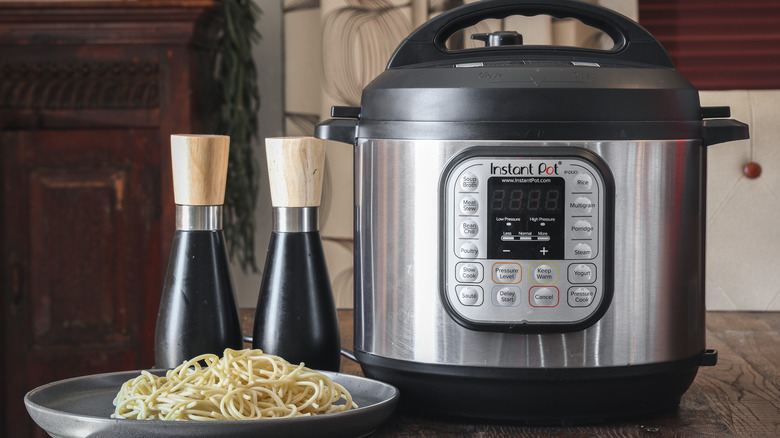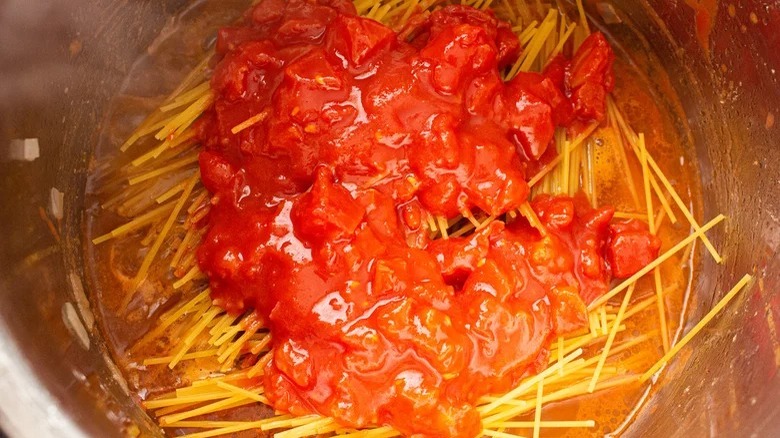The Reason You Need So Much Liquid For Pasta In Your Instant Pot
Where would home cooks be, without our trusty Instant Pots? A pressure cooker, slow cooker, rice maker, yogurt maker, and so many more all in one easy-to-use countertop appliance, the Instant Pot definitely streamlines life in the kitchen especially when you don't have the time to be standing over the stove stirring. The Instant Pot gets a lot of love for its ability to produce a huge range of dishes, from spicy salsa chicken to juicy prime rib to creamy mushroom risotto.
And although you might think that cooking pasta couldn't get any easier than it already is, Instant Pots have simplified that process, too, allowing you to add uncooked dried pasta into the pot along with some liquid and additional flavorings, set the appliance to the pressure cook function, and come back to enjoy perfectly cooked pasta.
Overall, producing an easy, tasty pasta in the Instant Pot is pretty straightforward, but you're going to want to pay attention to how much liquid you use. In order to get the best possible result, you'll want to make sure you've added just the right amount.
Instant Pot pasta will absorb all the liquid you add
Instant Pot pastas are true one-pot meals that can turn out fragrant, tasty, and even wonderfully al dente. But if you've never used your Instant Pot to whip up pasta, there's a bit of a learning curve when figuring out how much liquid to use.
You're probably used to tipping pasta into boiling water, cooking it, then draining all excess water. But in the Instant Pot, you won't get the opportunity to drain any liquid — or add any more — during cooking. Cooking pasta in the appliance uses its pressure cook function, during which the machine locks to allow steam to build up, then get pushed back into the food to cook it (via CNET). It's important to remember that any liquid you add will be almost totally absorbed by the pasta, so don't be too stingy when adding it. You'll need more liquid than you might think; enough to cover the pasta, according to Kitchn. Otherwise, you'll end up with too-dry, undercooked pasta, or the appliance will display a BURN error and shut off. Kitchn advises using four cups of liquid per pound of pasta.
Since that liquid will get sucked right into the pasta, be sure to season it well before locking the pot and cooking the dish. If you get it right, you should have a bowl of beautifully cooked and tasty pasta without having to stand over a hot stove the whole time.

